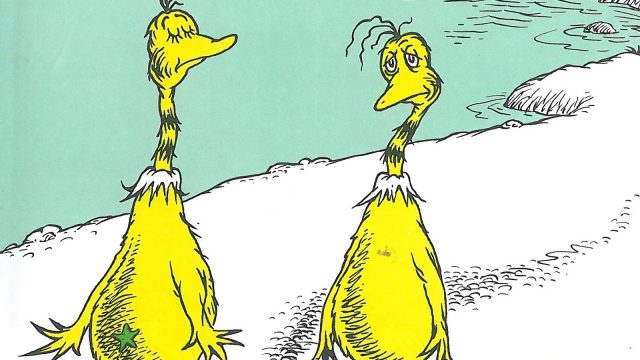The impulse with any serious parenting conversation is to have it when your kid is older. Four just seems so young to talk to him about anything more important than the fact that he cannot just watch Paw Patrol on a loop and in fact sometimes does not get his own way. This is not helped by the fact that the only Serious Conversation I remember having with my own mother was when, as a small Catholic child, I asked her what the word “virgin” meant and had the Illustrated Encyclopedia of Science and its colour transparencies hauled out in my mother’s extremely hamhanded attempt at The Sex Talk. (Thank Gods I went to public school and had proper sex ed from people who understood “age-appropriate,” since I was not much older then than my son is now.) It’s hard to do these things when you don’t have a good model to follow.
But it turns out that putting off the talk about race with my sweet little blonde son will just make it more likely for him to hold racist attitudes as an adult. You’re apparently not going to raise a kid who doesn’t notice ethnicity. You’re going to raise a kid who absorbs a lot of assumptions about being white in this country without knowing that you don’t think some of those assumptions are right. Yeah, TV works really hard these days to show ethnic kids on children’s television, but a lot of those kids are tokens, and the white kids are usually still “the leader.” You want the lesson taught, you’ve got to do it yourself.
I still, however, think the best way to teach a kid something is through stories. At least a kid his age. That’s what I did learn from Mom and the transparencies. You lower a Serious Conversation on your kid, they can remember it with dread for decades. I don’t want to do that. Pop culture seems to agree with me on this one, showing variant after variant of the parent sitting seriously down and trying to have a Serious Conversation while the kid squirms.
Not all stories on this are created equal, either, hence the derision of Afterschool Specials that has lasted long since the last one aired in 1997. And they weren’t even all about Serious Issues. Still, there’s a lot of bad art aimed at teaching your kid about racism. I think he’s even experienced some of it. Since I don’t pay strict attention to the plots of his shows, I’m not entirely sure. Certainly I’ve not seen him watch anything that felt like a good springboard to talk to him in a little more depth on the issue.
What someone ended up suggesting to me, and a few other parents going through this same dilemma, was good old Dr. Seuss. The Sneetches, it seems, were deliberately created as a comment on the nonsense of racism. Given when it was written, probably to get in under a lot of parents’ noses. The Star-Bellied Sneetches think they’re better than the ones without, and they won’t let the ones without go to their parties and such. So a guy comes along with a machine that puts stars upon thars, and there are no Sneetches without stars on their bellies. So the original Star-Bellied Sneetches get theirs taken off, and now Sneetches without are the best on the beaches. And the guy ends up making quite a lot of money before the Sneetches realize that it doesn’t matter.
This is not to say that we can teach the kid that race doesn’t matter, quite; race does matter in this country, and he as a white boy will have life considerably easier in several ways than some of the other kids in his surprisingly diverse (for Western Washington) preschool. But we can teach him that it shouldn’t matter, because his friend Ellie is just as good as he is even if her skin is different. (They both have riotous and adorable curls, however.) We can use the Sneetches as a springboard, which is what I was looking for in the first place. And, sigh, when he’s older, we can use some of the World War II cartoons about the Japanese to show that even people who are passionate about equal rights for some hold some seriously unpleasant attitudes toward others.
So I read it to him last night. And he agreed that the Sneetches were silly and Sylvester McMonkey McBean is a pretty clever guy—time enough to talk later about manipulation and so forth! And that Ellie’s skin shouldn’t make anyone treat her any better or any worse. And that’s a good place to start with a four-year-old, and as he gets older, I’ll find more media to help me teach him Valuable Lessons.

